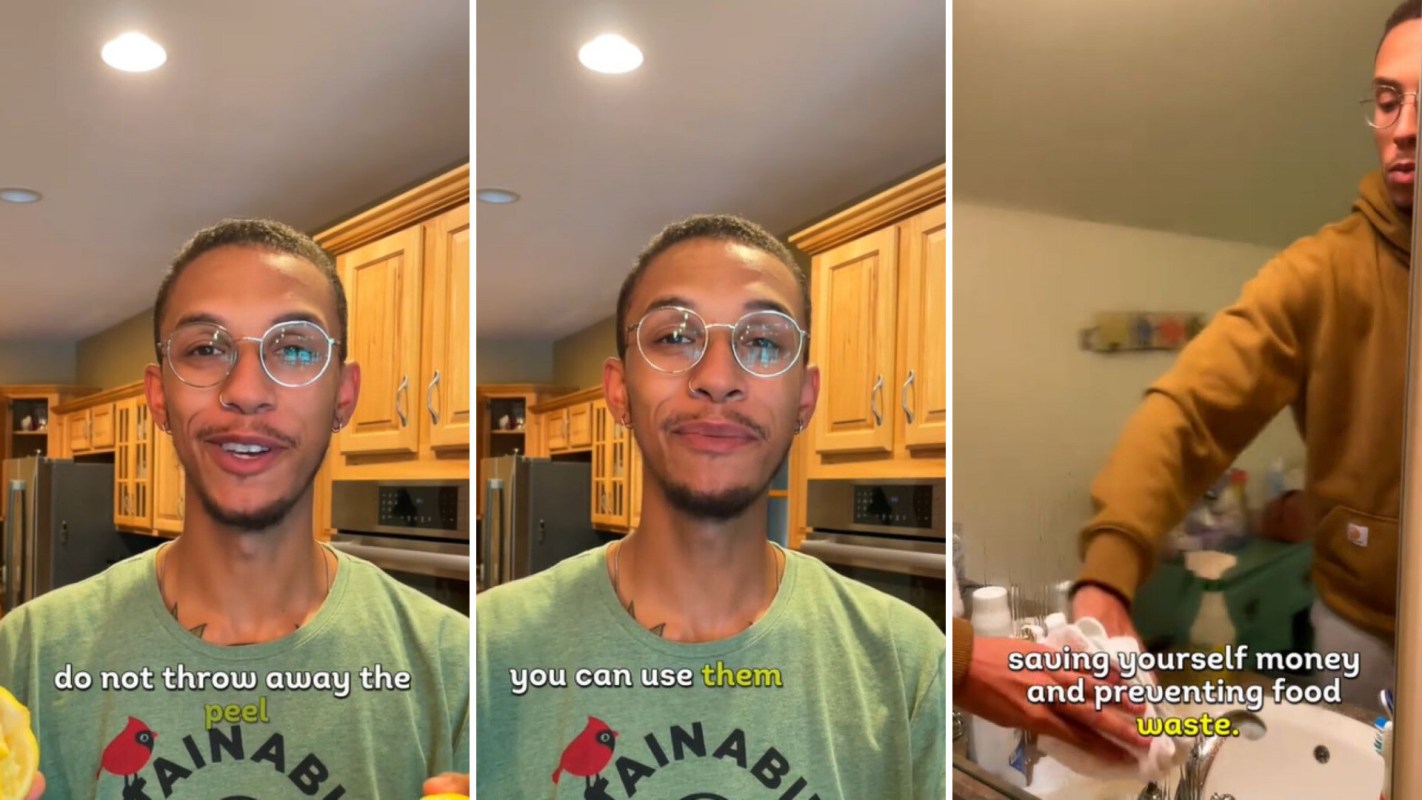You know what they say: When life gives you lemons — save the peels and make cleaning spray. At least that's what Virginia grassroots nonprofit Sustainability Matters (@sustainabilitymattersva) is saying.
The scoop
In a video that quickly earned over 75,000 likes, the popular TikTok account shared a hack for using lemon peels to make an all-natural cleaning spray.
"When you're done squeezing the juice out of lemons, do not throw away the peel because they are far from trash," the narrator says.
They then explain that the acid in lemons is strong enough to wipe out bacteria and odors, making it an effective cleaning agent.
@sustainabilitymattersva Don't toss out your lemon peels 🍋 Instead, use them to make an all natural cleaning spray! All you have to do is: 🍋Add lemon peels to a jar 🍋Fill jar with white vinegar 🍋Close the lid and give it a good shake 🍋Let that sit for 1-2 weeks (shaking the jar every few days) 🍋Strain out the liquid from the peels 🍋Use your homemade cleaning spray 🚨NOTICE🚨 Vinegar based cleaning solutions can damage the protective sealant/finish on stone countertops and hardwood floors. So, if that applies to you, it's probably best to dilute your solution with water to make it less powerful, or go with an alternative cleaning solution! #sustainabilitymatters #foodwaste #lemon #lemonpeels #naturalcleaning #naturalcleaningproducts ♬ original sound - Sustainability Matters
"Once you squeeze out all the juice from your lemons, toss those peels into a jar or bottle, and once that's full, add in some white vinegar and give it a good shake," they continue. All you have to do next is let the jar sit for a week or two, shaking it every couple of days, then strain it, and voila, you have a natural cleaner ready to go, "saving yourself money and preventing food waste," the video ends.
How it's helping
As pointed out in the video, hacks like these save you money and prevent food waste, as you can make use of every part of the food before later composting. Lemon is such a popular cleaning ingredient that its uses abound, like making grimy ovens shine, removing stains from cutting boards, and even polishing wood.
Food is the largest material in landfills in the United States, accounting for 22% of municipal solid waste. Around 119 billion pounds of food is thrown away annually in the U.S., and a staggering 42 billion pounds is thrown out in homes.
Money and waste savings aside, the natural cleaner is a great alternative to commercial, chemical-laden cleaning products. Many common household cleaners may release hundreds of hazardous volatile organic compounds, known as VOCs, which can cause harm to our skin and lungs.
Also, when they get thrown out or washed down the drain, they make their way into our water and soil, causing significant harm to the environment and the plants and animals that inhabit it.
What everyone's saying
Understandably, the comment section was filled with praise and gratitude.
"Oh man. I wish I knew this 400 lemons ago but now I know," said one viewer.
"Great hack! Thank you," enthusiastically added another, while one pointed out they do the same with oranges, sharing, "I have been making orange vinegar cleaner for the past eight years."
One viewer, however, may have said it best: "I guess we could say that the juice IS worth the squeeze."
Join our free newsletter for easy tips to save more, waste less, and help yourself while helping the planet.









